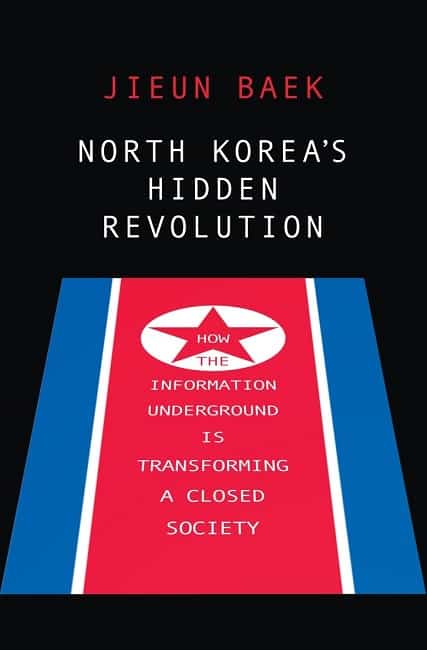SUBJECT: 5/5 WRITING STYLE: 4/5 RESEARCH: 4.5/5 EASE OF READING: 4.5/5 OVERALL: 4.5/5
“An estimated two hundred to two thousand calls are made between North and South Korea every day, despite such communication being illegal in both countries.”
Jieun Baek, North Korea’s Hidden Revolution
My musings
I love reading books related to travel and it was after
reading a travel journal on North Korea that this book popped into my recommendations
list. Inquisitive and eager, I soon found myself listening to the audiobook on
my Storytel app. Read on to know what I have to say about Jieun Baek’s North
Korea’s Hidden Revolution and to know about my experience of reading it.
What is the book all about?
North Korea’s Hidden Revolution is perhaps one of the
most original and also unconventional books that I have come across on the notoriously
famous nation. While most other books talk about unspeakable living conditions,
absolute government control, isolation of the country’s economy and its people
and last but not the least, history of North Korea, Jieun Baek’s book acquaints
the reader with the nation’s changing social and economic landscapes.
How is it different?
The book offers a stark contrast to most other books that
often talk about the same old things. Most other books, as regular readers
would likely agree, are just another addition to the ever-increasing list of
‘poverty porn’ or a ‘North Korea fetish’.
What to expect?
Expect a book that is easy to read. Expect a book that
offers a much subtler and less dramatic account of contemporary North Korea.
Finally, expect a book that makes use of a lot of firsthand accounts to bring
to us the insider’s perspective about a changing DPRK.
Who can read and who should read?
Readers who are keen on reading historical, social and political books especially about the Korean Peninsula must read this book to get a balanced and updated view of North Korea. It should be noted that North Korea of today is much different from North Korea of the Kim Jong-Il era.
The difference is particularly visible in the areas of communication and entertainment. Illegal CDs, DVDs, USBs and other forms of entertainment are exposing North Koreans to the bitter conditions that they live in. More and more North Koreans are now realizing the lies behind the state fed information about the living conditions outside the DPRK and about the evilness of the Americans.
What kind of research has gone into the book?
The research that the book encapsulates is mostly primary but many secondary facts also generously grace the text. We do get to read about many interesting facts. For example, on an estimate, there are almost 200 to 2000 calls made daily between North Korea and South Korea despite such communications being banned by both nations.
While like many other books we do get to know the stories of
many defectors to South Korea and China, Jieun Baek also tells us of this
phenomenon of double defection i.e. people who defect to South Korea only to
realize the impossibility of integrating with their advanced economy and strong
democracy.
We also learn about the efforts that previous defectors are
making (in their own words) towards information dissemination and changing the
mindsets of those who continue to live in the hermit kingdom.
“People say mountains change in about ten years. If something as stubborn and mammoth as a mountain can change in a decade, the hearts of ordinary North Koreans can change. I’m sure of it. I’m living proof.”
– Ha Young, a North Korean defector
Is the book interesting to read?
The book is indeed interesting. Not just because of the content but also because of the way it is written. Getting to read multiple people’s points of view breathes an air of freshness into the narrative. This is a book that sets out to change perceptions about North Korea and its people.
It tells the world that they are more similar to us than we
dare to believe and that they are also more connected with the outside world. Away
from the prying eyes of the state, they are secretly watching the same movies,
wearing similar clothes, partying to the same songs and doing the ‘regular
stuff’ much like the rest of us.
In the end
In the end, North Korea’s Hidden Revolution is a book
that showcases a much less dramatic and neutral side of North Korea. It tells
us a tale not of a pseudo-dystopian regime but that of a nation yearning for
change. At the same time, it brings to us honest and sincere voices from the
other side of the border that want to contribute in their own small ways
towards facilitating that change.
My Final Verdict
Go for it!
Pick it up
- If you like social and political reads.
- If you enjoy reading books about North Korea.
- If you are looking for a recent read on North Korea which is also less dramatic and much more subtle in its content.
- If you want to understand the power of information and communications as tools for change.
Skip it
- If you don’t enjoy nonfiction.
- If you don’t like political reads.
- If you are looking for a biography or memoir of a North Korea defector.
- If you are looking for an introductory guide to North Korea.
Can’t wait to read it? Buy your copy of North Korea’s Hidden Revolution using the link below.
